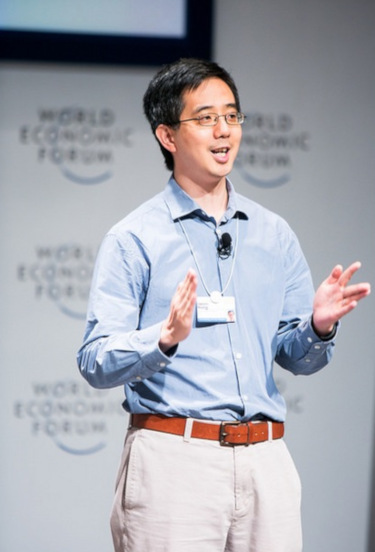R and I Week talk: Jason Hong discussing benefits and challenges of devices that spy on you

February 25, 2019 – Thunder Bay, Ont.
In today’s world, electronic devices are everywhere.
Your cellphone knows where you are and where you’re heading, fitness trackers monitor your vital signs, you talk to your TV. One day your clothes will send instructions to your washing machine.
“In the near future, our smart devices will know almost everything about us,” says Jason Hong, a U.S.-based researcher specializing in human-computer interaction.
“These devices offer the opportunity to vastly improve our health care, urban planning, safety, and more. However, these same devices also pose dramatic new challenges for privacy and ethics.”
As part of Lakehead University’s Research & Innovation Week activities, Hong will outline how these devices work, the rise of personal behavioural data, and how to ensure the benefits of these technologies outweigh the costs.
Hong’s presentation is titled “Are my devices spying on me? Living in a World of Ubiquitous Computing.”
No longer ugly boxes on our desks, smart devices have allowed computation, communication and sensing to be woven into all aspects of our physical world.
“They are everywhere,” Hong says. “They’re in our houses, they in our cars, they’re on our clothes. Today’s smartphones are the very beginning of what this world is going to be like.”
A professor at the Human-Computer Interaction Institute at Carnegie Mellon University in Pittsburgh, Penn., Hong’s research focuses on privacy and security issues, and two key questions: how to use this wealth of data to improve our lives, and how people can have better control over and feedback about their personal information.
New technology means that mobile devices such as cellphones and smartwatches contain vast quantities of information about every aspect of our lives, such as what we’re eating, the state of our health, and relationships with other people.
“That’s just the beginning,” Hong says. “These devices will have a lot more sensors and they’ll know more about our activities.”
But with advances that can lead to improved health and more lasting relationships, there is also a dark side: data can be misused or can be used on a nation-wide level to control behaviour and enforce conformity.
“There are a lot of problematic uses, but a lot of people just don’t understand how pervasive the tracking is,” Hong says of access to such wide-ranging personal information.
“The basic issue is not just Big Brother. It’s also Little Sister,” he adds. “People who might not necessarily want to harm you but might be nosy, or you might have a government bureaucrat who might be interested in efficiency. They might not mean harm but they could cause unintended side effects. There’s a whole host of issues.”
Researchers such as Hong are looking at what exactly these devices are doing, and how to build systems that are more reliable, trustworthy and understandable by the average user, so they can better protect themselves.
“The bigger issue is with all this technology and all these devices, the tracking can only become more broad,” he says. “It’s not just smartphones or the internet. As you go about your day-to-day life — where you’re driving, what TV shows you watch, what you’re saying to people — it’s also going to be richer for the kind of data that will be there.
“It’ll lead to big societal changes that we’re only at bare awareness of what it might be like,” he says. “We don’t want to sleep-walk into this. We want to have more deliberate thought about it with more research and better public policy.”
Hong’s presentation takes place Tuesday, Feb. 26, 7:30 – 9 pm in the ATAC building, room 1003.
For more about R and I Week, which is a showcase for research and innovation happening at Lakehead University, visit lakeheadu.ca/ri.
– 30 –
Media: For more information or interviews, please contact Brandon Walker, Communications and Marketing Associate, at (807) 343-8177 or mediarelations@lakeheadu.ca.
Lakehead University has approximately 9,700 full-time equivalent students and 2,000 faculty and staff in 10 faculties at two campuses in Orillia and Thunder Bay, Ontario. Lakehead is a fully comprehensive university: home to Ontario’s newest Faculty of Law in 44 years, the Northern Ontario School of Medicine, and faculties of Engineering, Business Administration, Health & Behavioural Sciences, Social Sciences & Humanities, Science & Environmental Studies, Natural Resources Management, Education, and Graduate Studies. Maclean’s 2019 University Rankings place Lakehead University among Canada's Top 10 primarily undergraduate universities and in 2018 Research Infosource named Lakehead Research University of the Year in its category for the fourth consecutive year. Visit www.lakeheadu.ca.


